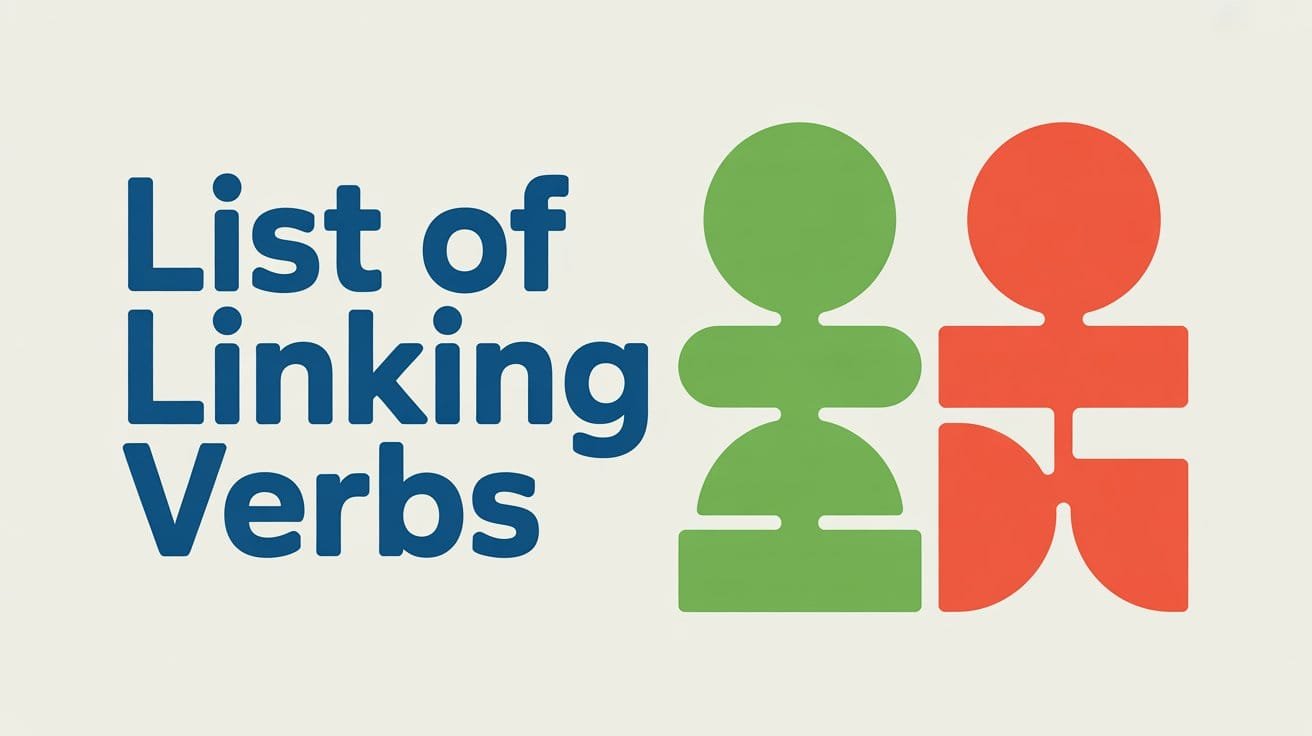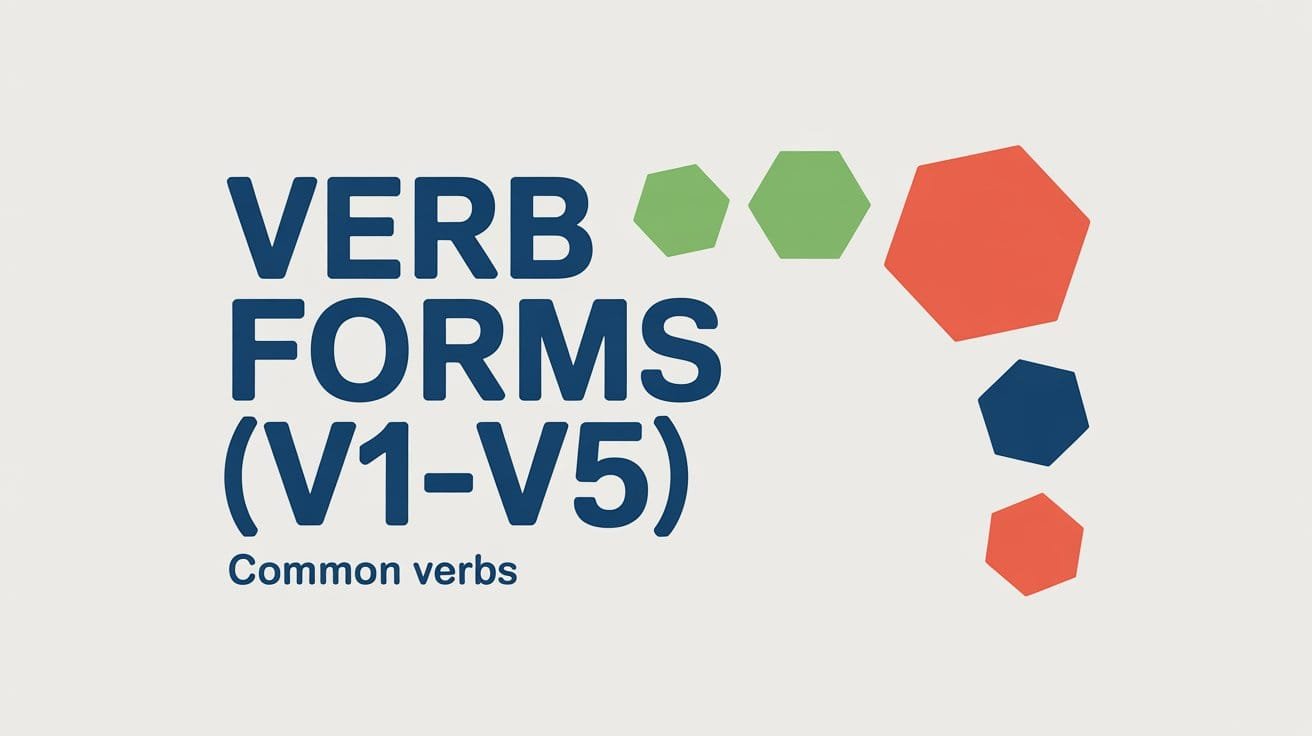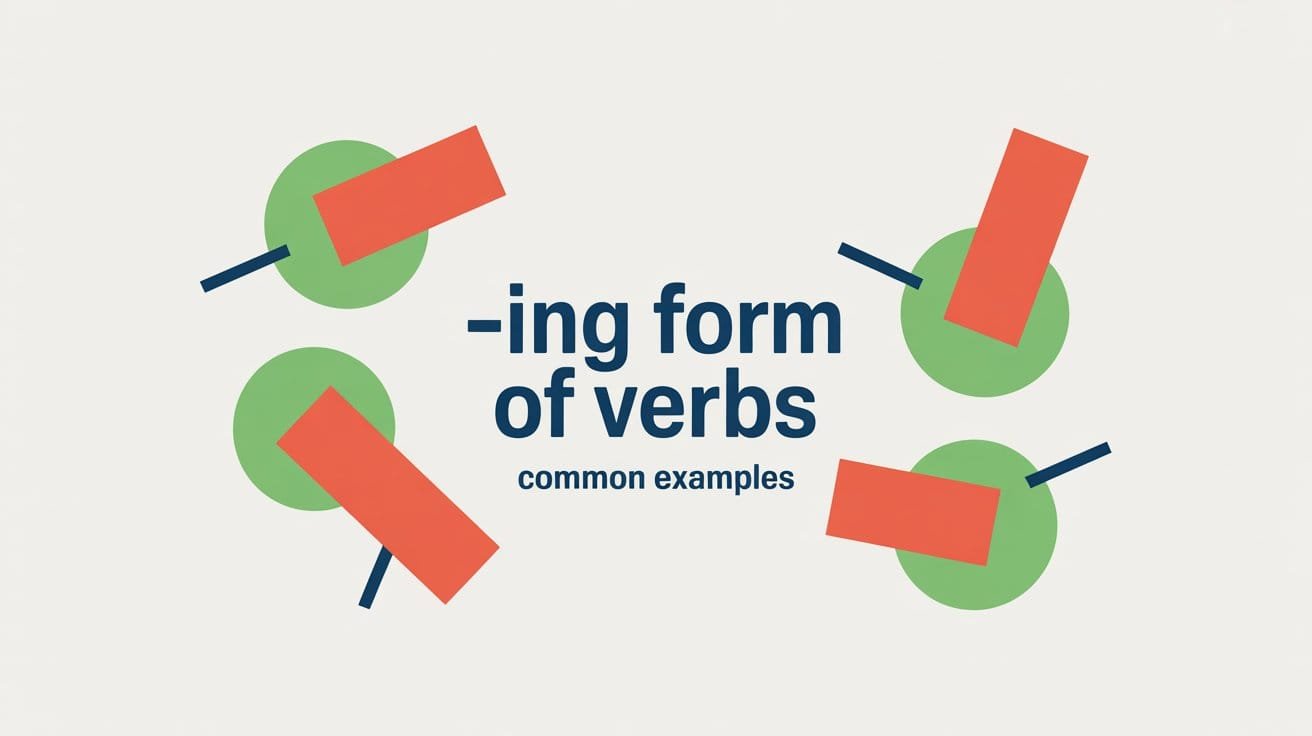Linking verbs don’t show action. They connect the subject of a sentence to a word that provides more detail about it, such as a noun or adjective. If you’ve ever written a sentence like The soup smells delicious or She is confident, you’ve used a linking verb.
This article provides a clear, categorized list of linking verbs used in English, along with sentence examples to show how they work. Whether you’re building vocabulary or reviewing for a grammar test, this reference will help you recognize and use linking verbs more confidently.
Complete List of Linking Verbs (Categorized)
Linking verbs are limited in number, but many of them are used frequently in everyday English. Below is a categorized list that makes it easier to learn and remember them. While some linking verbs are always used that way (like is or seem), others can act as action verbs in different contexts.
Forms of “Be” (Primary Linking Verbs)
These are the most common and consistent linking verbs. They always function as links between the subject and a complement.
- is
- am
- are
- was
- were
- be
- being
- been
Verbs of Change or Condition
These verbs describe a shift in the subject’s state, role, or condition.
- become
- get
- grow
- remain
- stay
- turn
Verbs of Appearance and Senses
These verbs often describe how something seems, looks, feels, or sounds, without showing an action.
- appear
- seem
- look
- feel
- sound
- smell
- taste
Some of these also act as stative verbs or action verbs, depending on how they’re used.
Linking Verbs Chart with Examples
This chart gives you a quick reference for commonly used linking verbs, showing how each one connects the subject to a subject complement, not to a direct object. Each verb is used in a real sentence to show how it works in context.
| Linking Verb | Used As | Example Sentence |
|---|---|---|
| is | identity | The winner is my neighbor. |
| are | description | These apples are fresh. |
| was | past state | The room was messy. |
| were | plural past identity | They were our teachers. |
| become | change of state | She became a skilled designer. |
| get | shift in condition | It gets dark early in winter. |
| grow | gradual transformation | He grew restless during the lecture. |
| stay | maintained condition | Please stay calm. |
| remain | continued state | The facts remain unclear. |
| turn | sudden change | The milk turned sour. |
| seem | perceived condition | That option seems reasonable. |
| appear | visible impression | The solution appears simple. |
| look | visual impression | You look tired today. |
| feel | emotional/physical state | I feel hopeful about the results. |
| sound | auditory impression | This idea sounds promising. |
| smell | scent-based description | The cake smells delicious. |
| taste | flavor-related sense | The lemonade tastes refreshing. |
Dual-Use Verbs: Linking or Action?
Some verbs in English can function as either linking verbs or action verbs. The difference depends on whether the verb connects the subject to a description (linking) or shows what the subject is doing (action).
These flexible verbs include:
- look
- feel
- smell
- taste
- sound
- grow
- turn
Here’s how to tell the difference:
Linking Verb Use
- The rose smells lovely.
- He looks upset.
- The sky turned orange.
In these examples, the verb connects the subject to a description. You can replace the verb with is or was, and the sentence will still make sense:
- The rose is lovely.
- He is upset.
- The sky was orange.
Action Verb Use
- She smelled the rose.
- He looked through the window.
- They turned the doorknob.
In these sentences, the verbs describe what the subject is doing. Replacing the verb with is or was won’t work:
- ❌ She is the rose.
- ❌ He is through the window.
FAQs
How many linking verbs are there in English?
There’s no fixed number, but English has around 15–20 commonly used linking verbs. These include forms of be (is, are, was, etc.), verbs of change like become and turn, and sensory verbs like look, smell, feel, and taste.
What are 10 common linking verbs?
Here’s a quick list of 10 commonly used linking verbs:
is
are
was
were
become
seem
appear
look
feel
smell
Can the same verb be linking and action?
Yes. Verbs like taste, feel, look, and smell can act as both.
Are all stative verbs linking verbs?
No. While linking verbs often describe states, not all stative verbs are linking verbs.




It is I who am the one.
Correct?
That’s a great question! Yes, “It is I who am the one” is grammatically correct. The verb “is” acts as a linking verb connecting it (the subject) to I (the subject complement). Since who refers back to I, the following verb am agrees with I, not it.
However, in everyday English, most people would naturally say “It’s me who is the one.” Both express the same meaning, but the first is the formal, traditional form, while the second is more common in modern usage.